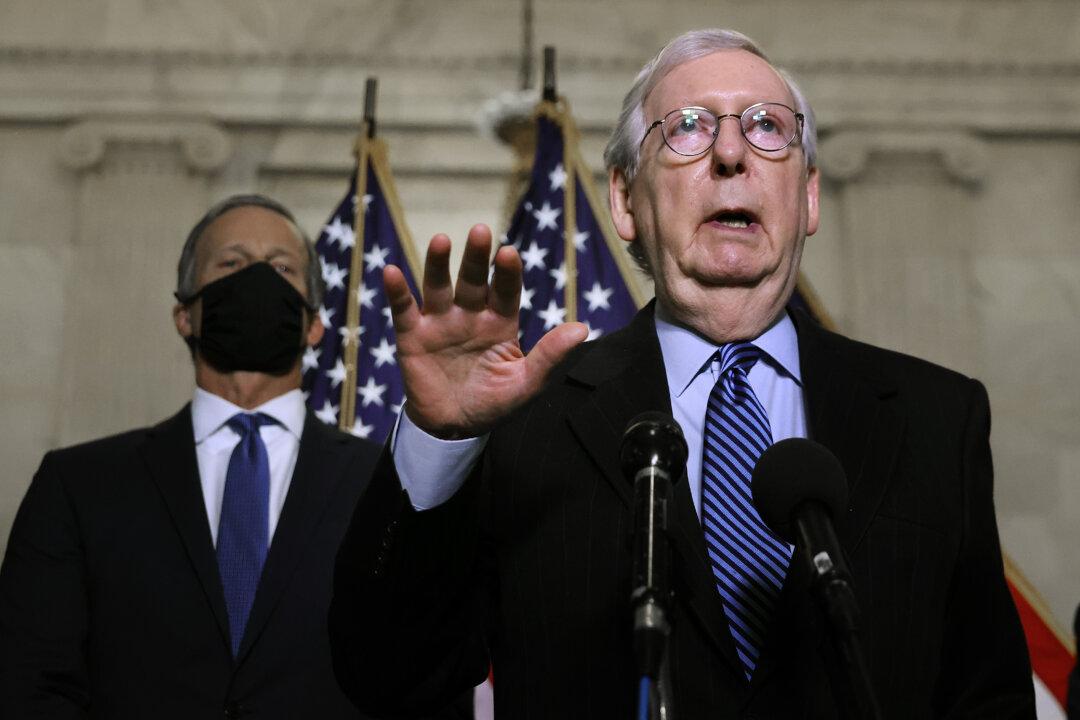Senate Minority Leader Mitch McConnell (R-Ky.) on April 5 admonished corporate leaders for their criticism of Georgia’s new voting law, accusing them of falling for “absurd disinformation” and of “dabbling in behaving like a woke parallel government.”
“Our private sector must stop taking cues from the Outrage-Industrial Complex,” McConnell said in a statement. “Americans do not need or want big business to amplify disinformation or react to every manufactured controversy with frantic left-wing signaling.”





